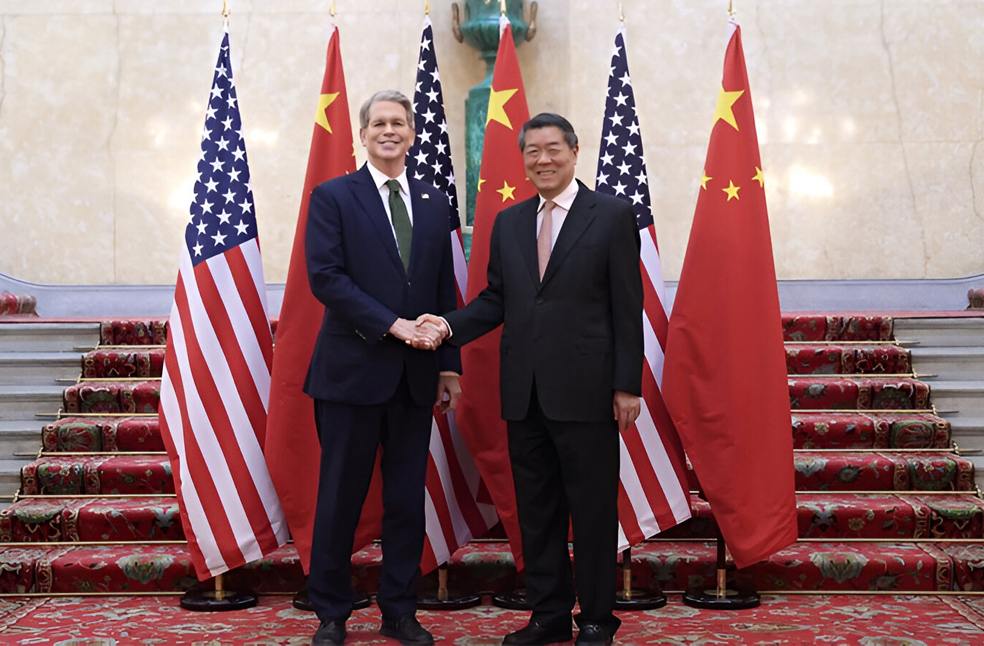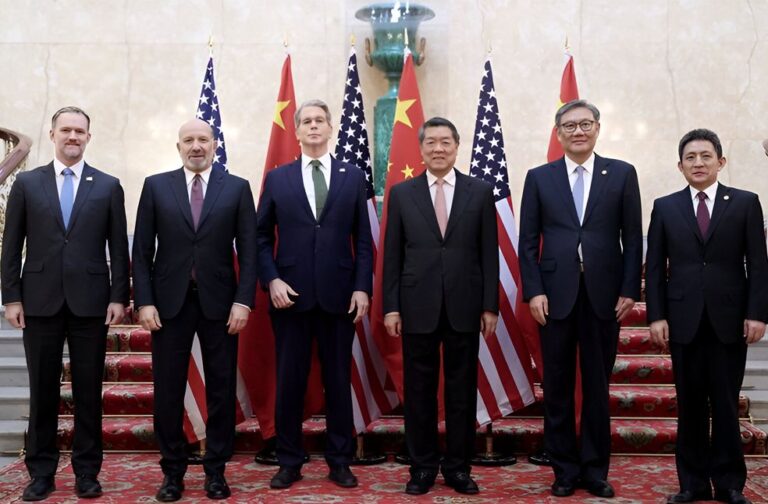London: The United States and China have agreed in principle to a trade truce framework aimed at easing escalating tensions, following two days of intensive negotiations in London.
The agreement is expected to pave the way for a resolution on disputes involving rare earth minerals and restrictions on critical technologies.
US Commerce Secretary Howard Lutnick said the tentative deal, once approved by President Donald Trump and President Xi Jinping, would address long-standing issues including China’s delays in rare earth exports and US restrictions on semiconductor technologies.
— Howard Lutnick (@howardlutnick) June 11, 2025
Trade truce framework set
The talks followed a key phone conversation between the two leaders last week, which Trump described as ‘a very good talk.’ Chinese Vice Commerce Minister Li Chenggang said the framework implements the consensus reached during the June 5th call and the earlier Geneva meeting.
Rare earth minerals and magnets vital for industries ranging from electric vehicles to defence systems, were central to discussions.
The US accused China of slowing down rare earth exports, while Beijing criticized Washington for blocking sales of AI-related semiconductors, cancelling Chinese student visas, and restricting Chinese firms like Huawei.
Last month, a temporary truce had been struck in Geneva, where tariffs were reduced on both sides: US tariffs on Chinese goods were cut to 30 percent (down from a peak of 145 percent), and China reduced levies on US imports to 10 percent. That deal also included a 90-day deadline to finalize a trade resolution.

Since then, each side has accused the other of breaching the terms. US Trade Representative Jamieson Greer said China failed to ease restrictions on rare earth magnet exports, while China accused the US of continuing bans on technology-related goods and services.
Ahead of this week’s talks, China’s Ministry of Commerce said it had approved certain export licenses for rare earths, though it did not specify the destinations. President Trump announced that Xi had agreed to resume rare earth trade.
Lutnick stated that, “We have reached a framework to implement the Geneva consensus. Once the presidents approve it, we will then seek to implement it.”
This marks a critical moment in the ongoing economic tug-of-war between the world’s two largest economies. If approved by both presidents, the framework could signal a shift toward stabilizing trade relations and restoring balance in key global supply chains.



